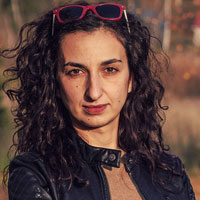 |
Irene-Angelica Chounta is a Professor of Computer Science at the Department of Human-centered Computing and Cognitive Science, University of Duisburg-Essen in Germany. She leads the interdisciplinary group “Computational methods in modeling and analysis of learning processes” (colaps). Her research focuses on Learning Analytics, Artificial Intelligence in Education (AIED) and educational technologies. Her main interest is to model learners’ behaviour to provide adaptive and personalized feedback. Irene was born and raised in Athens, Greece and has lived and worked in Germany, Estonia, and USA. She currently serves on the Executive Board of the International Artificial Intelligence in Education Society (IAIED) and she is a member of the International Society of the Learning Sciences (ISLS) and the Society for Learning Analytics Research (SoLAR). Irene collaborates with the Council of Europe as an expert consultant on AIED. |
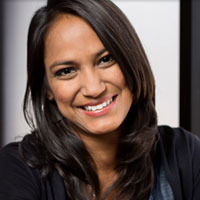 |
Bhoomika Agarwal is a PhD candidate at the department of Technology-enhanced Learning and Innovation of the Faculty of Educational Sciences of the Open University of the Netherlands. Her PhD aims to create an Ethical Framework for Artificial Intelligence in Education. Besides her PhD, she likes to dabble in coding, poetry, origami and reading books. |
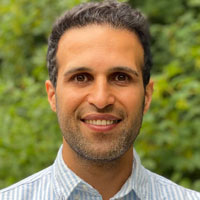 |
S. Kazem Banihashem is an assistant professor at Open Universiteit in the Netherlands, specializing in educational technology. His research explores the pedagogically mindful adoption of advanced technologies to enhance educational practices. He is especially interested in the roles of artificial intelligence and learning analytics in enhancing assessment, feedback, learning design, and higher-order thinking skills. |
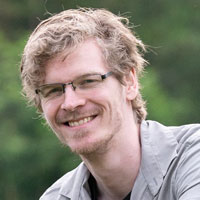 |
Nico van der Wiel is the lab manager for the Social Sciences research laboratory. With a background in experimental and theoretical psychology, he works closely with the Department of Technologically Enhanced Learning and Innovation to establish an Educational Technology laboratory. In this context, he develops and conducts workshops on the use and ethics of AI in education, primarily utilizing advanced AI models such as ChatGPT and Google Gemini to explore and implement innovative learning technologies. |
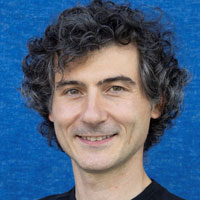 |
Dr. Deniz Iren is an Associate Professor in the Information Science Department at Open Universiteit, where his research focuses on affective computing and behavioral AI. Actively involved in the Brightlands Smart Services Campus, he leads multiple innovative research projects in collaboration with companies and societal partners. In 2023, he received the Comenius Teaching Fellowship to explore the use of AI avatars and large language models in education, which led to the development of the Augmented Reality Tutor (ART), a cutting-edge tool for technology-enhanced learning. |
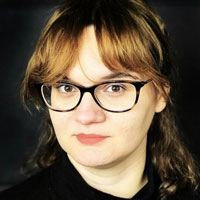 |
Krist Shingjergji has a background in Mathematics and AI. She is a PhD Candidate in the multidisciplinary program "Innovation for Resilience", working on the project "Sense the Classroom: AI-supported synchronous online education for a resilient new normal". The project combines educational technologies, information systems, and AI to develop a system that recognizes students' learning-centered affective states through their non-verbal cues and informs teachers accordingly in an actionable way to improve the learning process. Her research interests are AI in education, Computer Vision, Emotions in Education, and Learning Analytics Dashboards. |
 |
Dr. Hubert Vogten works at the Education Expertise Centre of the Open University. Drawing from his IT and education technology background, he is mainly involved in investigating the impact of generative AI on education. |
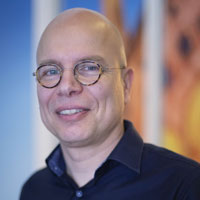 |
Iwan Wopereis is a lecturer in academic skills at the Faculty of Educational Sciences of the Open University (OU). As an educational technologist, he also participates in various educational innovation projects, including the OU project ‘Slim Bekeken’ (Smart Move) and the national Npuls project Data and AI Literacy. Iwan studied Applied Educational Science at the University of Twente and graduated from the Department of Instructional Technology. His professional interests lie at the intersection of educational design (4C/ID), technology and creativity. See Google Scholar for a list of publications. |
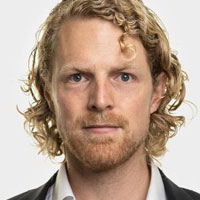 |
Prof. Reijer Passchier is Professor of Digitalization and the Democratic Rule of Law at the Open University and Associate Professor of Constitutional and Administrative Law at Leiden University. He is currently authoring the book ‘De vloek van Big Tech’ (‘The Curse of Big Tech’, expected from Boom in late 2024) and previously published ‘Artificiële intelligentie en de rechtsstaat’ (‘Artificial Intelligence and the Rule of Law’, Boom Legal 2021). In 2021, he won The Meijers Best Article Prize and the Van Wersch Springboard Prize for the best publication in the legal field. |
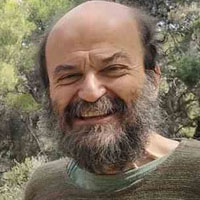 |
Yannis Dimitriadis is Full Professor of Telematics Engineering, University of Valladolid, Spain (institutional website). He is also coordinator of the GSIC/EMIC interdisciplinary TEL research group. His most recent research work has focused on human-centered learning analytics and artificial intelligence, ethics in research, alignment of learning design and learning analytics, design for learning, and orchestration of computer-supported collaborative learning processes. He is member of the editorial board of multiple journals, such as JCAL, APIN, BJET, ETS, etc. and co-editor of the 2024 BJET special section on Human-Centered Learning Analytics. He has participated in more than 50 competitive research projects in TEL and co-authored more than 100 journal papers and 215 conference papers. |
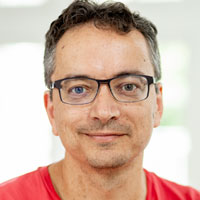 |
Prof. Dr. Roland Klemke chairs the Technology-enhanced Learning and Innovation department at the Open University of the Netherlands. He leads research in AI for education, multimodal learning, augmented and mixed reality, serious gaming, and gamification. Additionally, he is a professor at Cologne Game Lab, TH Köln, specializing in game informatics. He is also CEO of Humance AG, focusing on mobile and web-based solutions. Previously, he taught at Mediadesign Hochschule and contributed to research at Fraunhofer Gesellschaft. He holds degrees from University of Kaiserslautern and RWTH Aachen. Roland is a member of Gesellschaft für Informatik, ICO, and SIKS, with over 50 peer-reviewed publications in the TEL field. |











